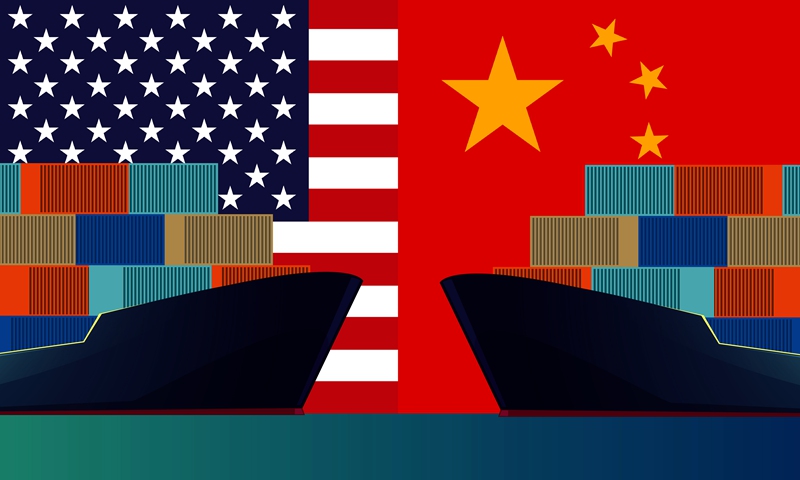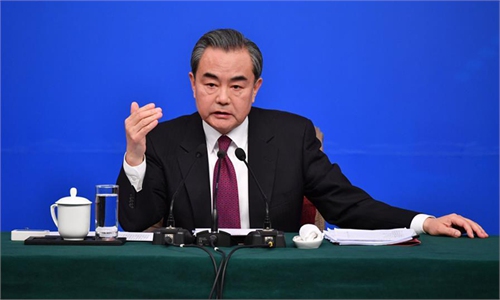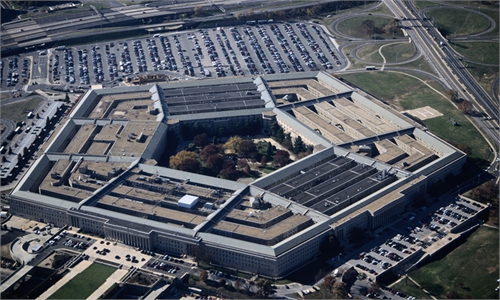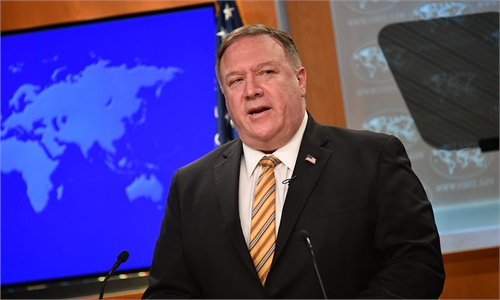
Photo:Global Times
US President Donald Trump on Friday stated that he wasn't even thinking about reaching a phase two trade agreement with China, as he continued to blame China for the world's worst COVID-19 outbreak in his country, saying that the relationship between China and the US has been "severely damaged."
The occasion and intention of such remarks are significant. Who was Trump speaking to and what was his intended goal? Was he simply provoked by reporters? Was he trying to appear tough on China amid his botched reelection campaign by the COVID-19 epidemic? Was he so troubled by the continuously worsening COVID-19 outbreak in the US that he wants to abandon his trade policies toward China, which he made the biggest selling point of his presidency and reelection?
However, Trump, like no other world leader, is known for his freewheeling speeches that often lack any coherence and logic, which is precisely why it was impossible to fathom why Trump made the remarks to reporters on Air Force One on his way to Florida and what his intended plan is. It's entirely possible that he got carried away in the moment and didn't think through before he opened his mouth, after all he has got plenty on his mind, including the virus which has killed over 136,000 Americans and infected 3.24 million more as well as his teetering reelection campaign.
What is clear, however, is that dimming the prospect for a phase two trade agreement does not help the US President in any way, whether its fighting the virus, getting the US economy back on track or winning another presidential term in the upcoming elections.
As for China, Trump's remarks are unlikely to make any splash in Beijing, let alone changing China's stance on trade negotiations. Quite bluntly, Trump might not "think about" a phase two deal, but that is unlikely on China's top agenda either. Beijing surely knows that under the current circumstances, Trump and the US economy needs a phase two trade agreement with China more than China does.
That was apparent even before the pandemic. Before the phase one trade deal was even signed in mid-January, US officials were already prematurely announcing the start of negotiations for a phase two agreement. Needless to say, that did not get any positive response from Beijing, where officials maintained that the most important thing was to ensure the phase one deal first before jumping into a second phase.
That position has not changed over the past few months, as Chinese officials rarely even mentioned the words - "phase two," even though they repeatedly reaffirmed that they will strive for the implementation of the phase one deal. Though the trade war continues to be a big scar on global trade, China's strategic focus is entirely on preventing a second wave of the COVID-19 epidemic and getting its domestic economy back on track rather than engaging in endless talks with the US for a trade agreement that won't change US officials' relentless attacks on China on all fronts.
"Is it really worth it" is the question that is likely on Chinese officials' minds when considering talks on trade or anything else with the US. It's worth pointing out that since the phase one deal, the US has not moved to roll back its tariffs as it agreed as part of the phase one deal, despite repeated calls from US businesses. The US has also torn several international agreements and has withdrew from global organizations. What's the point of negotiating with an administration that does not honor its commitments? On top of that, it is still up for anyone's guess who will be sitting in the Oval Office next year. What's the point of reaching a deal with someone who might not be in the office soon?
Still, we want to stress that ending the China-US trade war is good for China, the US and the global economy, especially with COVID-19 continuing to wreak havoc on economies around the world. Also important is that both sides should keep their doors open for talks and resolve the trade dispute through dialogue. But for that, Washington, not Beijing, needs to change its tone and approach.



